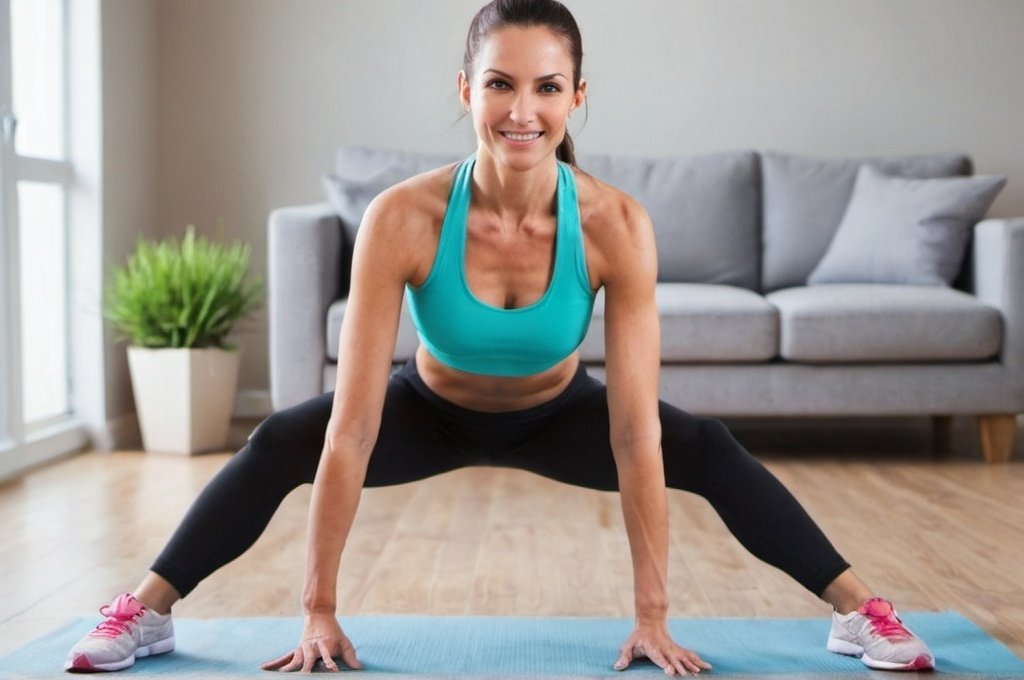
Introduction to Anxiety and Its Impact
Anxiety is a common mental health disorder that affects millions of individuals worldwide. Characterized by persistent feelings of worry, fear, or apprehension, anxiety can manifest in various forms including generalized anxiety disorder, social anxiety, and panic disorder. Common symptoms include restlessness, fatigue, difficulty concentrating, irritability, muscle tension, and sleep disturbances. These symptoms not only affect one’s mental well-being but can also have significant physical implications such as increased heart rate, sweating, and gastrointestinal issues.
In modern society, the prevalence of anxiety is on the rise due to various factors such as fast-paced lifestyles, high-pressure environments, and the constant influx of information from digital platforms. According to recent studies, nearly 40 million adults in the United States alone experience anxiety disorders each year, making it a pressing public health concern. Unmanaged anxiety can lead to severe consequences, including chronic stress, depression, substance abuse, and a lower quality of life. Moreover, it can impair daily functioning, affecting professional performance, relationships, and overall well-being.
Given its widespread impact, it is imperative to address and manage anxiety effectively. Developing simple daily habits can be a powerful tool in reducing anxiety levels and improving mental health. This blog post aims to provide practical strategies and tips to help individuals incorporate anxiety-reducing practices into their daily routines. By understanding the gravity of anxiety and taking proactive steps to mitigate its effects, one can achieve a more balanced and healthier lifestyle.
The Importance of Routine for Managing Anxiety
Establishing a daily routine can be a powerful tool in managing anxiety. For individuals coping with anxiety, the predictability and structure that a routine provides can create a sense of normalcy and stability. This sense of order can be calming, offering a mental framework in which to navigate daily challenges. Adopting simple routines allows for an organized approach to each day, minimizing the unforeseen and reducing anxiety triggers.
One effective routine to consider is a consistent morning ritual. Starting the day with a set sequence of activities, such as waking up at the same time, engaging in light exercise, and eating a healthy breakfast, can set a positive tone for the rest of the day. These small yet structured actions help align the mind and body, curbing the initial rush of morning anxiety that many experience.
Incorporating scheduled breaks throughout the day is another beneficial routine. Such intervals can serve as mini-reprieves from work or other obligations, allowing for mental relaxation and reflection. Whether it involves a short walk, some deep breathing exercises, or simply stepping away from one’s desk, these moments of respite can reset the mind, reducing cumulative stress and anxiety.
Equally important is having an evening wind-down routine. As the day concludes, engaging in activities that signal to the body that it is time to relax can significantly aid in reducing anxiety. This could involve reading a book, taking a warm bath, or practicing mindfulness meditation. Establishing a regular bedtime and preparing for sleep in a consistent manner bolster sleep hygiene, which is crucial for mental health and anxiety management.
Anxiety management is not solely about grand gestures or major changes; sometimes, the most effective strategies are small, consistent habits integrated into everyday life. By committing to simple routines, individuals can create a framework that promotes calmness and predictability, helping to manage anxiety effectively.
Effective Breathing Exercises
Implementing effective breathing exercises is a powerful way to manage anxiety. These techniques not only help in reducing overall stress but also foster a sense of calm by engaging the body’s relaxation response. Among the most prevalent and beneficial breathing strategies are diaphragmatic breathing, 4-7-8 breathing, and box breathing.
Diaphragmatic breathing, also known as abdominal or deep breathing, focuses on using the diaphragm to take deeper breaths. To practice this technique, sit or lie down in a comfortable position and place one hand on your chest and the other on your abdomen. Breathe in slowly through your nose, ensuring that your abdomen rises more than your chest. This allows the maximum amount of oxygen to enter the lungs. Then, exhale slowly through your mouth, observing how your abdomen falls. Repeat these steps for 5 to 10 minutes daily. This method helps stimulate the parasympathetic nervous system, promoting relaxation and reducing feelings of anxiety.
Another effective breathing exercise is the 4-7-8 technique. To start, ensure you are seated comfortably with your back straight. Begin by placing the tip of your tongue against the ridge of tissue behind your upper front teeth. Keep your tongue in place throughout the exercise. Exhale completely through your mouth, making a whooshing sound. Then, close your mouth and inhale quietly through your nose to a mental count of four. Hold your breath for a count of seven, and finally, exhale completely through your mouth for a count of eight. This cycle helps to regulate the breath and induces a state of tranquility, beneficial for those experiencing anxiety.
Box breathing, or square breathing, is another practical technique. For this exercise, sit upright in a comfortable position. Inhale slowly and deeply through your nose for a count of four, feeling your lungs fill with air. Hold your breath for another count of four. Then, exhale slowly through your mouth for a count of four, and pause for a final four counts before taking another breath. This method helps create a rhythm, encouraging mindfulness and focus, which can significantly alleviate anxiety symptoms.
Integrating these breathing exercises into daily routines can effectively manage anxiety levels by improving oxygen flow to the brain and inducing a more relaxed state. Regular practice can be a vital part of a holistic approach to mental well-being.“`html
Physical Activity and Exercise
Incorporating regular physical activity into one’s daily routine can significantly aid in managing anxiety. Exercise not only enhances physical health but also plays a crucial role in regulating mental well-being. When we engage in physical activity, our bodies release endorphins—biochemicals frequently referred to as “feel-good” hormones. These endorphins foster a sense of happiness and relaxation, contributing to reduced anxiety levels. Simultaneously, exercise helps reduce the production of stress hormones such as cortisol, offering a natural counterbalance to feelings of anxiousness.
Moreover, physical activities can provide a much-needed mental distraction from anxiety. Focusing on the physical effort and coordination required during exercise gives the mind a break from persistent worries and anxious thoughts. This shift in focus can be particularly beneficial in creating a mental break, enhancing clarity and emotional balance.
Engaging in daily physical activity does not necessitate extensive time commitments or complicated routines. Simple exercises, which can be seamlessly integrated into everyday life, can yield substantial benefits. For instance, a brisk walk in the park, which requires no special equipment or preparation, can invigorate the body and calm the mind. Additionally, incorporating yoga into a daily routine can be particularly effective owing to its emphasis on controlled breathing and mindfulness, fostering a harmonious state of mind and reducing anxiety.
Cycling, another accessible form of exercise, offers the combined benefits of physical exertion and the enjoyment of outdoor scenery. Whether opting for a leisurely ride or a more rigorous cycling session, the physical activity involved can greatly contribute to easing anxiety. By consistently incorporating these simple yet effective exercises into one’s daily lifestyle, the pathway to better managing anxiety through physical activity becomes evident.
The Power of Mindfulness and Meditation
Mindfulness is a practice that centers on bringing one’s full attention to the present moment, acknowledging thoughts and feelings without judgment. This technique can play a significant role in managing anxiety by redirecting focus away from stressors and towards the ‘here and now’. By cultivating a mindful mindset, individuals can achieve a state of calm and clarity, making it easier to cope with anxiety.
To start practicing mindfulness, engage in simple exercises that integrate seamlessly into daily routines. Begin with mindful breathing: sit comfortably, close your eyes, and focus on your breath. Inhale deeply through your nose, hold for a few seconds, and exhale slowly through your mouth. Concentrate on the sensation of the breath entering and leaving your body. When your mind wanders, gently guide it back to your breath.
Another effective method is the body scan meditation. Lie down or sit in a comfortable position and close your eyes. Starting from your toes, slowly move your attention upwards through your body, noticing any sensations or tensions in each part. This exercise helps to create a stronger connection between mind and body, fostering relaxation and reducing anxiety.
Modern technology also provides valuable tools to help with mindfulness practices. Numerous apps offer guided meditation sessions, making it easier for individuals to incorporate mindful practices into their daily lives. These apps feature diverse techniques tailored to different needs, including stress reduction, improved focus, and better sleep. Popular options include Headspace, Calm, and Insight Timer, which offer both free and subscription-based content.
Guided meditation sessions can be particularly beneficial for beginners, as they provide structured guidance and support. These sessions typically involve a narrator leading participants through various mindfulness exercises, allowing them to develop their practice gradually. Over time, regular engagement with mindfulness and meditation can significantly improve emotional resilience and reduce anxiety levels.
Nutrition and Hydration: Feeding Your Mind
The relationship between diet and mental health is increasingly evident. The food and beverages consumed on a daily basis significantly influence brain function, emotional stability, and overall mental well-being. Certain foods have been found to either exacerbate or alleviate anxiety, making it essential to carefully consider dietary choices as part of managing anxiety effectively.
Whole foods, rich in vitamins and minerals, play a crucial role in promoting mental health. For instance, omega-3 fatty acids found in fish such as salmon and trout are known to support brain function while reducing inflammation – a contributing factor to anxiety. Similarly, incorporating foods high in antioxidants, such as berries, nuts, and leafy greens, can protect the brain from oxidative stress, thereby reducing anxiety symptoms.
On the other hand, the consumption of highly processed foods can have the opposite effect. Foods rich in refined sugars and unhealthy fats are often low in essential nutrients, which can lead to feelings of fatigue and heightened anxiety levels. Simple carbs and sugary snacks cause blood sugar spikes followed by crashes, contributing to mood swings and increased anxiety.
Maintaining adequate hydration is equally critical for mental well-being. Dehydration can result in irritability, fatigue, and concentration difficulties, all of which can exacerbate anxiety. Drinking sufficient water throughout the day and limiting the intake of dehydrating substances like caffeine and alcohol can help maintain a calm and focused mind.
Practical tips for managing anxiety through diet include planning meals that incorporate a variety of nutrient-dense foods, focusing on balance rather than restriction. Prioritize whole foods, adequate protein, healthy fats, and complex carbohydrates. Including foods like avocados, dark chocolate, and fermented products like yogurt can also boost mood due to their beneficial properties.
Adopting these nutritional habits can contribute to a more stable and resilient mental state, aiding in the management of anxiety on a daily basis.
The Role of Sleep in Anxiety Management
Maintaining a strong foundation of good sleep hygiene is crucial for managing anxiety effectively. Research has consistently shown a bidirectional relationship between sleep and anxiety: poor sleep can exacerbate anxiety symptoms, while heightened anxiety can interfere with a person’s ability to sleep restfully. Thus, fostering healthy sleep habits can be a pivotal step in reducing anxiety levels and promoting overall well-being.
A consistent sleep schedule is one of the most straightforward yet impactful ways to improve sleep quality. Going to bed and waking up at the same time every day, even on weekends, helps regulate the body’s internal clock. This consistency makes it easier to fall asleep and stay asleep, minimizing nighttime awakenings that can contribute to heightened anxiety.
Creating an optimal sleep environment is equally important for anxiety management. Ensuring that your bedroom is dark, quiet, and cool can significantly enhance sleep quality. Simple adjustments, such as using blackout curtains, white noise machines, or a fan, can make a noticeable difference. Additionally, reserving the bed for sleep and relaxation—avoiding work or other stimulating activities—can create a mental association between the bed and restful sleep.
Avoiding stimulants, particularly in the hours leading up to bedtime, is another key component of good sleep hygiene. Caffeine, nicotine, and even certain medications can interfere with the ability to fall asleep. Instead, opt for calming activities such as reading, taking a warm bath, or practicing relaxation techniques like mindfulness or deep breathing exercises. These activities signal to your brain that it is time to wind down, making sleep more attainable.
Ultimately, the intricate connection between sleep and anxiety underscores the importance of prioritizing sleep hygiene in daily routines. Implementing these habits can lead to significant improvements in both sleep quality and anxiety management, fostering a more balanced and composed daily life.
Building a Support System
Managing anxiety effectively often requires establishing a strong support system. The presence of friends, family, and support groups can serve as a cornerstone in alleviating anxiety, offering both comfort and understanding. These social connections provide an essential buffer against the overwhelming nature of anxiety, making the challenges feel less daunting.
Family members and close friends play a significant role in this support network. They usually have an intimate understanding of your personality, allowing them to offer empathetic, non-judgmental support. It’s crucial to communicate openly with them about your anxiety. Letting them know what triggers your anxiety, as well as what coping mechanisms work for you, can help them provide better support. Don’t hesitate to express your needs; whether it’s a listening ear or distraction through activities, clear communication ensures that everyone is on the same page.
Equally important is engaging with support groups. These groups, composed of people who experience similar struggles, offer a unique form of solace and understanding. Sharing experiences with others in a safe space can provide immense relief and practical advice. It is often comforting to know that you are not alone in your journey, and hearing how others manage their anxiety can introduce new coping strategies you might not have considered.
Moreover, seeking professional help should not be underestimated. Therapists and counselors are trained to help individuals manage anxiety through various methods, including cognitive-behavioral therapy (CBT), and can offer coping mechanisms tailored to your specific needs. If social situations make you anxious, one-on-one sessions can be a good starting point before gradually moving toward group settings.
Building a robust support system is a proactive step in managing anxiety. By reaching out and communicating effectively with those around you, including joining support groups and seeking professional help when needed, you can create a network that promotes emotional well-being and personal growth.


